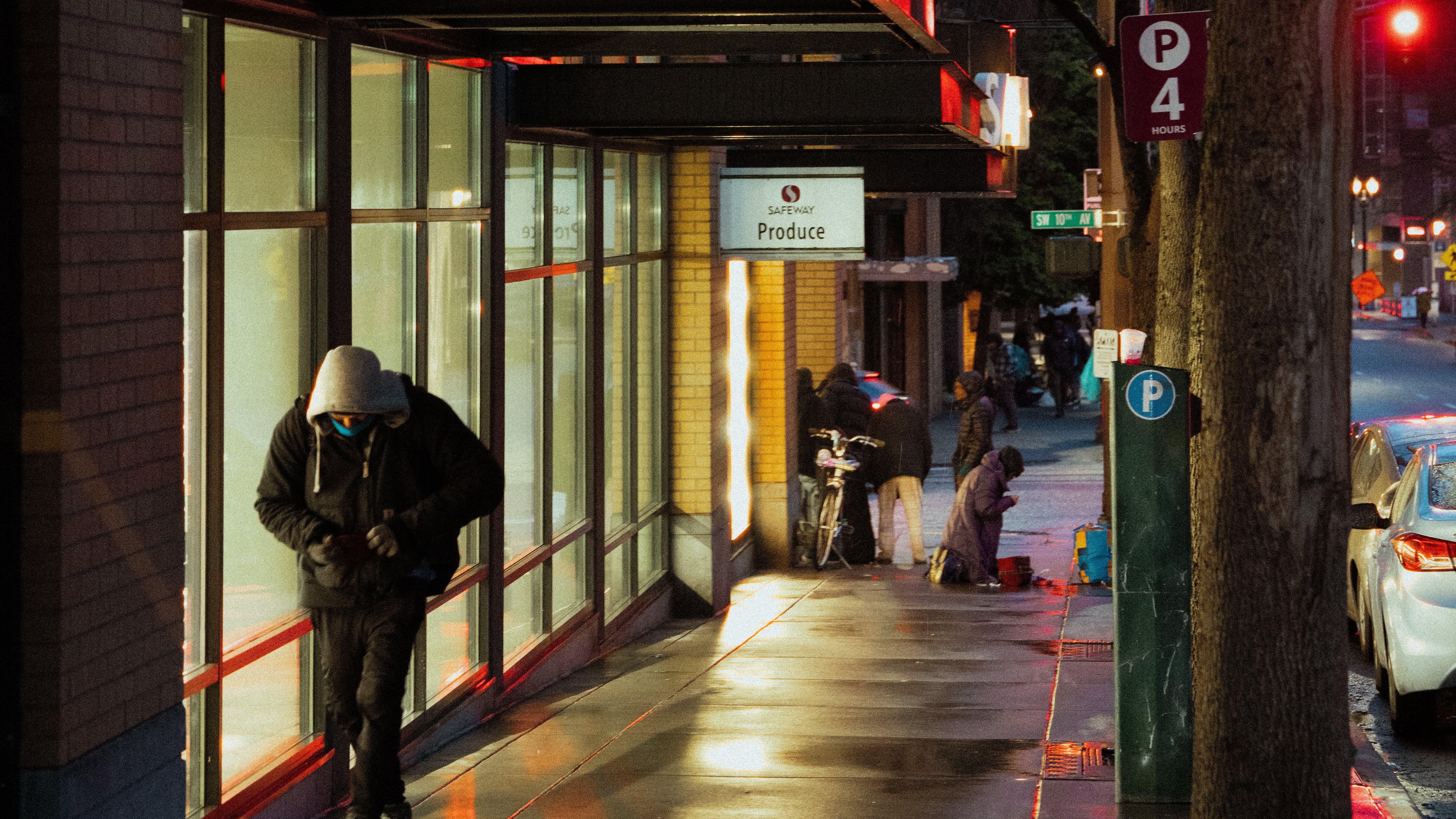Gov. Tina Kotek will announce today she is suspending the requirement that the downtown Safeway on Southwest 10th Avenue and a nearby Plaid Pantry store on 11th Avenue accept the returns of cans and bottles under Oregon’s Bottle Bill.
The exemption—for those two stores only—is effective March 2 though April 1 and will be evaluated after a month. (The Oregon Beverage Recycling Cooperative says Safeway will continue to accept green bags at Southwest 10th but will not accept unbagged loose cans and bottles. Plaid Pantry is not part of the green bag program.)
The Bottle Bill requires retailers who sell canned and bottled beverages to redeem them for deposit. It’s a blanket requirement across the state, and any exemption is unusual—the notable exception came during the pandemic, when Gov. Kate Brown exempted stores in November 2020 and didn’t require them to resume redemptions until July 2021.
Earlier this month, WW reported in a cover story that downtown retailers, including Target, Rite Aid and Safeway, have been struggling with a fentanyl ecosystem outside their stores: Some people return empties and immediately convert the small amount of cash to fentanyl, smoke it outside the stores and repeat that process over and over. With the closure of the Galleria Target last fall and a Pearl District Rite Aid on Feb. 1, many fentanyl users migrated to the blocks around the Safeway at 1030 SW Jefferson St. and the Plaid Pantry at 1305 SW 11th Ave.
Related: Fentanyl Threatens Oregon’s Cherished Bottle Bill
As part of the reporting of that story, WW asked Kotek last month whether she would consider using her emergency authority to exempt some retailers from the Bottle Bill to break the link to the drug. (Kotek, Mayor Ted Wheeler and Multnomah County Chair Jessica Vega Pederson jointly declared a fentanyl emergency Jan 30.)
At that time, Kotek spokeswoman Elisabeth Shepard said the governor was “open to hearing about problems and possible solutions to issues affecting the Portland central city,” but wanted to be careful about affecting people who were simply returning cans for legitimate reasons.
“Actions that will impact people have to be based on data, not anecdote,” Shepard said then. “Any consideration of this would also need to address the impacts on people who use bottle drop to pay for essential needs like food.”
But the open-air fentanyl market around the Safeway and Plaid Pantry blocks has become intolerable for tenants and visitors to the neighborhood, which is also near Portland State University.
In a recent email to WW, a tenant of a nearby apartment building noted the proximity of the Safeway to the Portland Art Museum, Arlene Schnitzer Concert Hall, Oregon Historical Society, and other attractions.
“This location is in the middle of the Cultural District,” the email said. “Passersby, including families with children, are subjected to open drug use, perhaps even fentanyl fumes. It is difficult to see how downtown can even begin to recover if drugs sales and consumption persist in the very place where downtown visitors would come.”
Last week, KGW reported that Portland police had arrested 10 fentanyl dealers near Safeway but that didn’t make a dent in the problem. So today, Kotek, in concert with Wheeler and Vega Pederson, acted to cut off the most readily available source of cash for fentanyl users—can and bottle returns.
“The governor, chair and mayor came to a joint decision in response to a request for action from Unified Command,” Shepard says, referring to the entity the elected officials formed to take charge of the fentanyl emergency. “Members of the governor’s staff also visited the [Safeway and Plaid Pantry] sites to further evaluate the situation prior to this joint decision.”
Plaid Pantry CEO Jonathan Polonsky called the temporary exemption for his store “very welcome news.”

